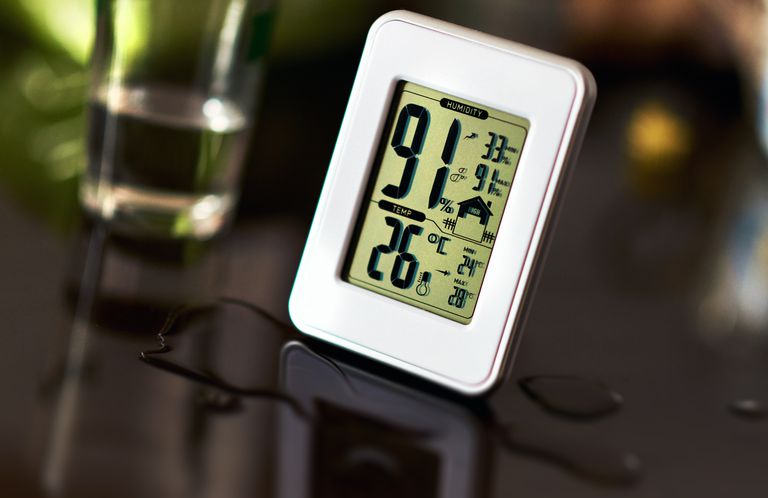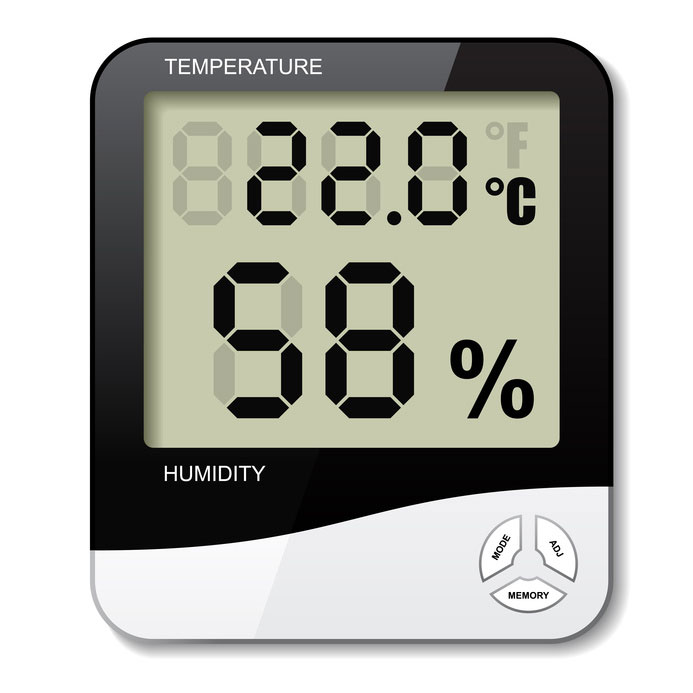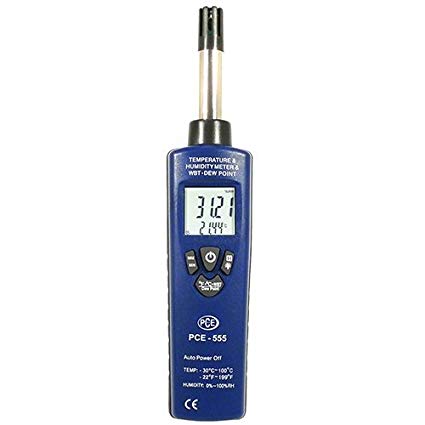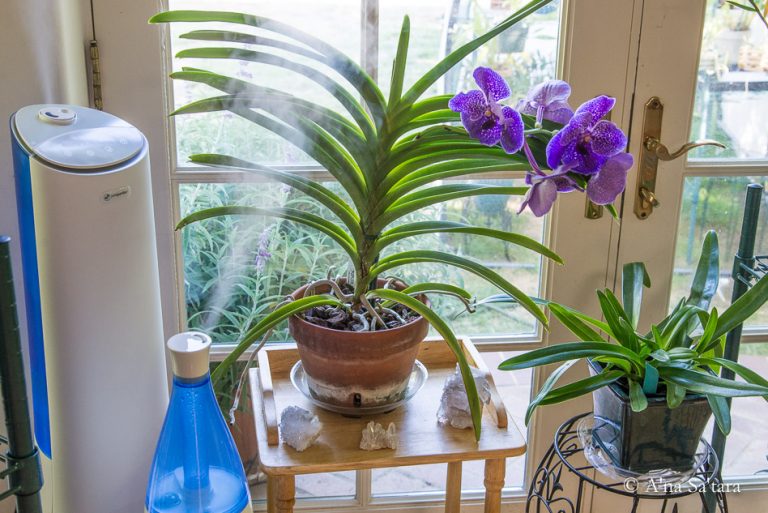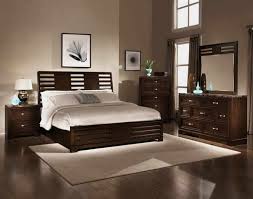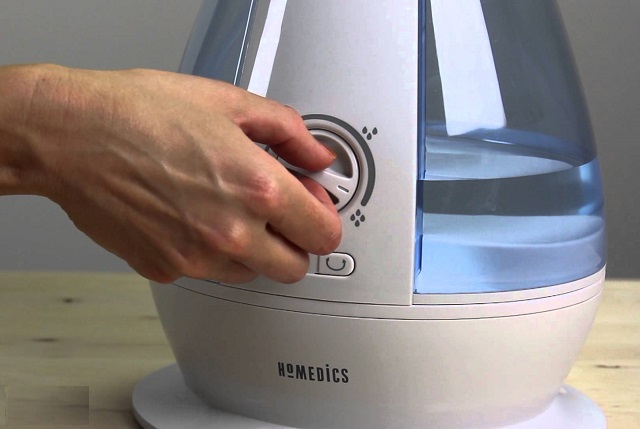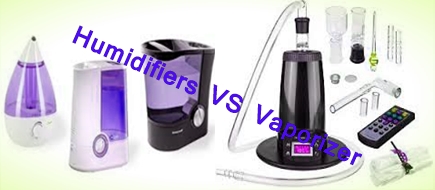How Does Hygrometer Helps in Controlling the Humidity Levels of Your Room
Balancing humidity level in any room or workplace is a key to have a healthy atmosphere. Right humidity level is not only necessary for our comfort, but it also contributes to keeping us healthy. No doubt, good atmosphere of a house or workplace is more productive. Just like the less humidity Is a matter of concern, in the same way, a high level of humidity is neither healthy nor helpful.
What is a Hygrometer?
A hygrometer is an instrument to gauge the humidity level of an area. The instrument is quite handy and is used by both professionals and home users. The portable device is easy to carry wherever you go.
Different kinds of hygrometer are available and are used in houses, industrial areas, hospitals, museums and wherever the humidity level needs to be in check. Like every other device, hygrometers are also designed with innovative features and can easily tell the relative humidity level and temperature. The device is quite affordable, and a must buy due to its optimal health benefits.
Different types of Hygrometers:
1.Electrical hygrometers
These hygrometers use resistance or capacitance to measure the amount of humidity in the air. Electrical hygrometers can either be capacitive or resistive. Capacitive hygrometers have two metals plates that have air between them; the moister the air is, the more it affects the plates’ ability to store a static electric charge. The amount of humidity is indicated by the metal plates’ ability to store the electric charge. Resistive hygrometers, electricity passes through a piece of ceramic substance which is exposed to the air. The higher the humidity, the more water vapor condenses inside the ceramic, leading to a change in resistance.
2.Psychrometers
This type of hygrometer comprises two thermometers: one that has a dry bulb, and one that has a wet bulb. When evaporation occurs in the wet bulb, the temperature drops to a lower level than that of the dry bulb. This difference in temperature is caused by the humidity in the air. Psychrometers are ideal for measuring outdoor humidity and areas which need dry storage conditions.
3.Dew point hygrometers
Dew point hygrometers are used to measure the saturation of moist air in a gas. These hygrometers are used in areas where the smallest amounts of moisture need to be found. These devices are the most precise of all the hygrometers.
The details about the different types off hygrometers were pulled from http://www.switches.co.za/different-types-hygrometers-uses/
How does a hygrometer work?
As we just mentioned above, hygrometers are used to measure the humidity level of a room. It has a sensor that can detect the electrostatic changes in the air in accordance with the changes in the humidity in the air around the sensor.
How does a hygrometer help you use a humidifier?
Humidifiers are the devices designed to add moisture into the air. Their sole purpose is to increase the humidity level of the room. Cool mist humidifier and warm humidifiers, both use the water in their tanks and add water vapor into the air of the room. But what if humidifier makes the room more humid? How to know exactly when the air in your room gets too dry for you?
This is where using a hygrometer becomes essential. A hygrometer complements a humidifier by keeping track of the humidity level in an area and indicating when to use the humidifier and when to turn it off.
What can happen if you do not properly measure humidity?
Ignoring the humidity level of your house can lead to serious health conditions. It makes the hygrometer more important and relevant to maintain a healthy atmosphere of your home.
Low humidity
Low humidity can cause several respiratory diseases. The lack of moisture in the air allows dust particles and other allergens to move around freely in the air, making you susceptible to many diseases and allergies. Low humidity can also cause a cough, cold, or other infections. Especially in dry nights, the lack of humidity can trigger a cough and irritation in the throat and nasal passage. Dry weather can also cause dry skin and even eczema.
High humidity
Just like low humidity can cause several health issues, high humidity is also a matter of concern. More moisture in the air can make you feel uncomfortable and damp. It can allow mold and mildew to grow. A moist environment is also a breeding ground for different virus and bacteria. The extra water content in the air is not only a source of many infections, but it is a risk for your expensive furniture, carpet or flooring.
A recommended humidity level of a room
The recommended humidity level of a room is between 30-50%. This range will provide the best comfort for your family, while also keeping your furniture and other belongings and material safe from the damaging effect of dryness or excessive moisture. Humidity level fluctuates depending on climate and temperature. It also depends on the interior of a house, like the interior, construction and ventilation.
How to use a hygrometer?
A hygrometer is a portable device that can be easily moved from room to room. You can strategically place hygrometer to measure the humidity of different rooms or problem areas like basements and attics. A hygrometer will indicate the humidity level of the area, and you can take necessary actions to preserve the healthy environment.
A hygrometer is also valuable if you are already using a humidifier for your room. It can indicate when it is time to switch off your humidifier to prevent the extra moisture into the room.
How can a hygrometer help in preventing mold
Mold is a common issue in damp areas. It can cause health issues like throat infection, eyes irritation, nasal stiffness, as well as many skin issues. A hygrometer can be useful in indicating the excessive moisture n the air, which is the primary cause of the growth of mold. Although hygrometer cannot actually prevent mold it can certainly pinpoint the problem areas where you need to use a dehumidifier to prevent the growth of mold.
Humidifiers are important for maintaining the right humidity level of a house. It is pretty useful especially for children, allergy patients, or people with other health conditions. Hygrometers are necessary for keeping an eye on the humidity level of a room. It can help prevent equipment failures, food from spoiling, and even fizzy hairs. A hygrometer can make life a lot easier and your home environment safer.

